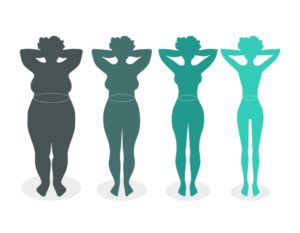Nov 3rd 2025
Discover How Berberine and Weight Loss Work Together

Gut Health
One good thing about getting older is that we generally become more self-accepting, warts and all. And if we’re getting a little paunchier in our mid-sections, in the broad scheme of things it’s just not the big deal it would have been in our greener years. Besides, as my good friend Alice says, “everybody’s fat now.”
But cosmetic issues aside, gaining fat is an indication that our cells are in trouble. The fact that we’re hardly alone in this predicament doesn’t mean it’s not something to be concerned about. A spreading middle means we’re headed in the wrong direction—the direction of premature aging and chronic disease.
Fat cells produce inflammatory chemicals, and chronic inflammation is a common denominator of chronic disease.
Being overweight increases your risk of high blood sugar and is the single best predictor of developing type 2 diabetes. High blood sugar causes glycation—a “sugar-coating” of proteins, and since our bodies are made of protein, glycation can gum up the works anywhere, thickening arteries, stiffening joints, weakening muscles, obstructing organ function and even causing organ failure.
High blood sugar also causes excess insulin production. Insulin is the hormone responsible for getting sugar out of the blood and into our cells, where it can be burned as energy or stored as fat. But excess insulin causes multiple problems of its own, including higher cholesterol and triglycerides, increased blood pressure, and thicker blood with a greater tendency to clot.
Both excess blood sugar and insulin are highly inflammatory.
But, you may say, “I’ve tried to lose weight, and it’s just gotten harder now that I’m older.”
Well, have you tried berberine? In recent Newsclips, we’ve talked about how berberine activates AMPK, an enzyme that serves as a master switch for controlling energy, turning on chemical pathways that release and burn energy while turning off pathways that store energy as fat. AMPK declines with age, which may be why losing weight has become more difficult.
In one study, obese human subjects were given 500 mg of berberine three times a day for 12 weeks. Without any attempt to diet or exercise, these people lost 5 pounds while reducing their triglycerides 23% and their cholesterol 12.2%. While 5 pounds isn’t a huge weight loss, berberine had obviously shifted their body chemistry in the right direction, promising more weight loss to come.
In another study, with men and women aged 32-68 and newly diagnosed with metabolic syndrome, weight loss was more substantial. These subjects took 300 mg of berberine three times a day for 12 weeks, again without any other intervention, and their average BMI dropped from 31.5 to 27.4 while other metabolic markers also improved.
Berberine just might be the missing ingredient that thwarted your previous attempts at weight loss! Now that Beyond Health is offering a superior berberine product, it may be time to try weight loss once again, adding berberine into the equation.
References:
- Hu Y. Lipid-lowering effect of berberine in human subjects and rats. July 2012; 19(10): 861-867.
- Yang J. Berberine improves insulin sensitivity by inhibiting fat store and adjusting adipokines profile in human preadipocytes and metabolic syndrome patients. Evidence-Based Complementary and Alternative Medicine. Published online in 2012. Accessed November 3, 2018.
 Fuel your life with the purest vitamins
Fuel your life with the purest vitamins